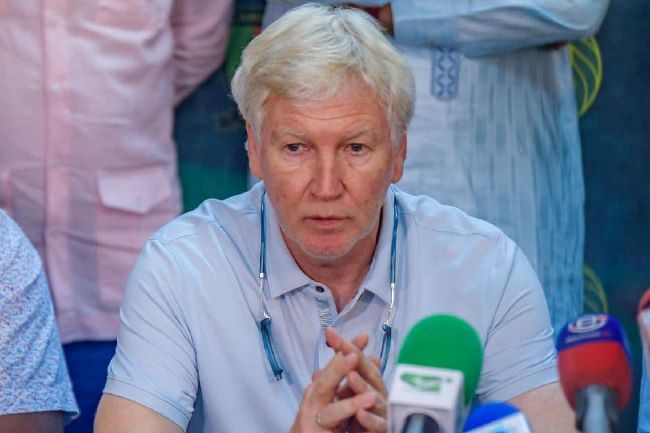22, April 2025
Over half of World Bank projects in Cameroon now flagged as high risk 0
More than half of the World Bank–funded projects in Cameroon are now considered “at risk” due to poor execution, slow disbursements, and looming deadlines, government officials said during a recent review of the country’s World Bank portfolio.
Out of 17 national projects backed by the World Bank, 9 have fallen behind schedule, according to Cameroon’s Ministry of Economy, Planning and Regional Development (Minepat), which oversees coordination with the Bank. These include efforts to expand rural electricity, improve secondary education, support digital transformation, and respond to food insecurity.
Among the most critical cases is the country’s digital acceleration project, known as PATNUC, which has only used 15.4% of its CFA55 billion budget, even though it launched in 2023. “We have completed the midterm review and found good solutions to speed up delivery,” said Guy Ronel Guemaleu, deputy director of multilateral cooperation at Minepat.
Other struggling projects include the CFA87 billion rural electrification project (PERACE), which is nearing its deadline in just two months with only 45% of funds disbursed. The education-focused PADESCE project, worth CFA73 billion, is also behind, with just 42% of funds used and a closing date in December.
Cameroon’s emergency response to food insecurity (PULCCA), under the Ministry of Livestock and Fisheries, is moving slightly faster, at 53% disbursement, but it too is set to close later this year. Another major program, PROLOG, aimed at boosting local governance and resilience, was approved in 2023 with a CFA172 billion budget but was recently rated “moderately unsatisfactory.”
Despite these setbacks, a few projects are showing strong performance. These include initiatives focused on transport development, education reform, adaptive social protection, and regional economic development (PIDREC), Guemaleu noted.
Still, the broader picture is worrying. Many of these World Bank projects target essential sectors such as infrastructure, education, health, and agriculture. Delays and poor execution risk limiting their long-term impact.
Guemaleu explained that the main issues include unrealistic planning, late approval of work plans and budgets, a poor grasp of social and environmental procedures, and weak familiarity with the rules governing project management units. He also pointed to slow procurement processes, land access problems, and long wait times for required approvals.
The current World Bank portfolio in Cameroon includes 17 national projects, 15 of which are active, with a total budget of CFA2,429 billion. As of April 2025, the overall disbursement rate stands at just 32.76%, below the expected 38% for projects that are on average 3.8 years old. For the current fiscal year, the rate is even lower—just 16.36%—with hopes to reach 20% by June 30. The undisbursed committed balance is an estimated $3.014 billion (about CFA1,844.4 billion), according to Guemaleu.
The situation is just as concerning from the World Bank’s point of view. Cheick Fantamady Kanté, the Bank’s Country Director for Cameroon, confirmed that 69% of committed funds have not yet been used. “As of March 2025, the annualized disbursement rate is at 15%, far below the 20% target,” he said. “This has been a consistent problem since the 2018 fiscal year, when the rate stood at 17.9%.”
Source: Business in Cameroon


























22, April 2025
Cameroonians in Austria, Germany pay tributes to much-loved visionary leader 0
Friends and well-wishers are lauding the life and work of Enow Peter following his death. Cameroon Concord News gathered that he died of a heart attack at his work place in Vienna.
Senior Cameroonian elites in Europe and in North America have been reacting to his untimely and sudden death.
Dr Joachim Arrey of the Global Think Tank For Africa led the legion of tributes that have been paid to the late Manyu citizen from Egbekaw village.
“With the death of Enow Peter, Cameroonians in Austria have lost a valuable member who made meaningful contributions to the development of the Cameroonian community in Vienna and also in the Federal Republic of Germany,” Dr Joachim Arrey said.
For his part, Chief Robert Mengot of the Manyu Elements Cultural and Development Association (MECA Germany) said Enow Peter was a motivator and a compatriot who was an optimist about the future of Cameroon as a nation.
Chief Eyong Paolo of MECA Nordrhein-Germany described how shocked he felt upon hearing of the sudden death of Enow Peter. Chief Eyong told Cameroon Concord News that Enow Peter during his time in Germany cared for the needy, and when Cameroonians cried for help, he answered!
Enow Peter, a native of Egbekaw village in Mamfe, graduated from Government High School, Mamfe before proceeding to the University of Calabar in Nigeria where he obtained his B.Sc and later an MSc in Austria. He leaves behind his beautiful wife and children and a bunch of siblings and friends to mourn him. May his soul rest in peace!
By Soter Tarh Agbaw-Ebai